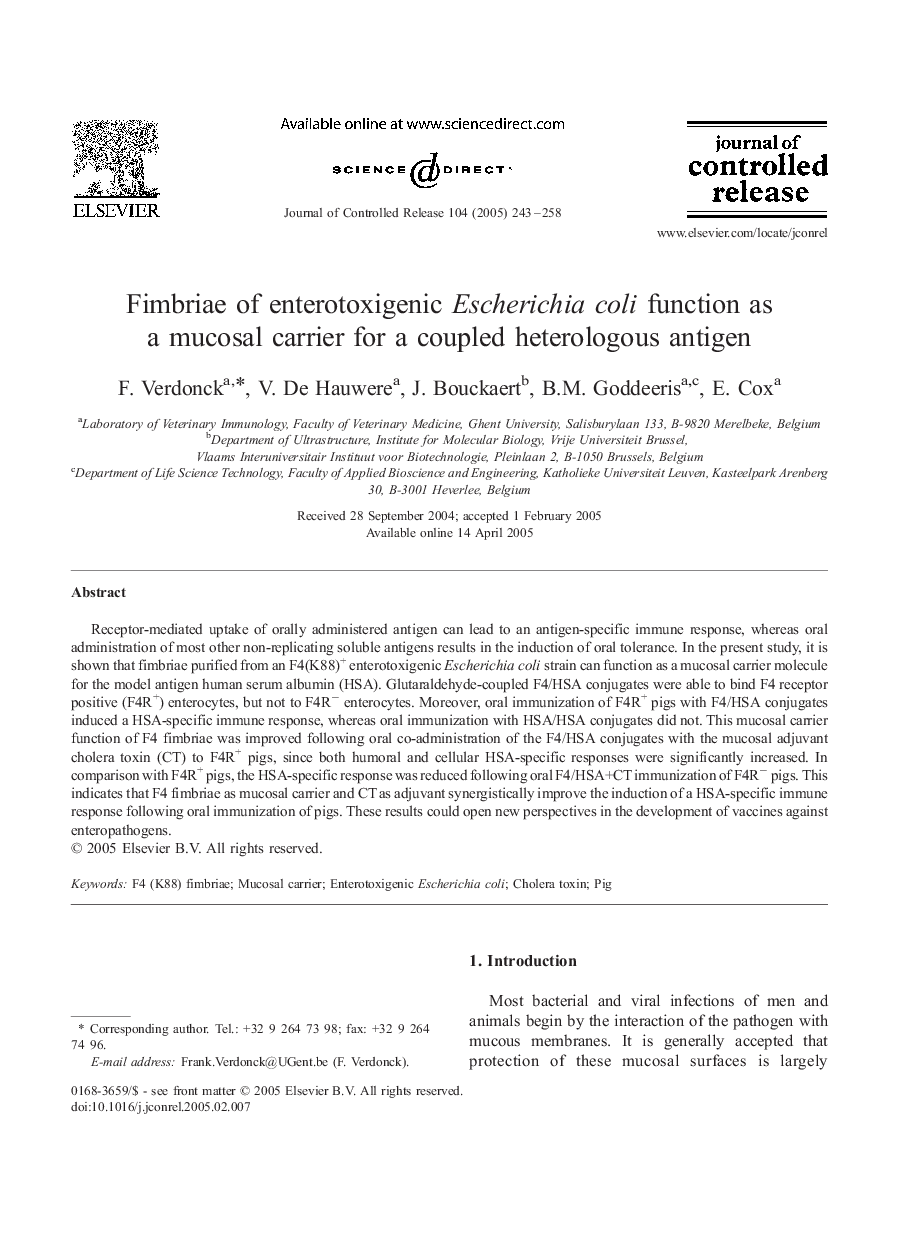| Article ID | Journal | Published Year | Pages | File Type |
|---|---|---|---|---|
| 10613504 | Journal of Controlled Release | 2005 | 16 Pages |
Abstract
Receptor-mediated uptake of orally administered antigen can lead to an antigen-specific immune response, whereas oral administration of most other non-replicating soluble antigens results in the induction of oral tolerance. In the present study, it is shown that fimbriae purified from an F4(K88)+ enterotoxigenic Escherichia coli strain can function as a mucosal carrier molecule for the model antigen human serum albumin (HSA). Glutaraldehyde-coupled F4/HSA conjugates were able to bind F4 receptor positive (F4R+) enterocytes, but not to F4Râ enterocytes. Moreover, oral immunization of F4R+ pigs with F4/HSA conjugates induced a HSA-specific immune response, whereas oral immunization with HSA/HSA conjugates did not. This mucosal carrier function of F4 fimbriae was improved following oral co-administration of the F4/HSA conjugates with the mucosal adjuvant cholera toxin (CT) to F4R+ pigs, since both humoral and cellular HSA-specific responses were significantly increased. In comparison with F4R+ pigs, the HSA-specific response was reduced following oral F4/HSA+CT immunization of F4Râ pigs. This indicates that F4 fimbriae as mucosal carrier and CT as adjuvant synergistically improve the induction of a HSA-specific immune response following oral immunization of pigs. These results could open new perspectives in the development of vaccines against enteropathogens.
Related Topics
Physical Sciences and Engineering
Materials Science
Biomaterials
Authors
F. Verdonck, V. De Hauwere, J. Bouckaert, B.M. Goddeeris, E. Cox,
